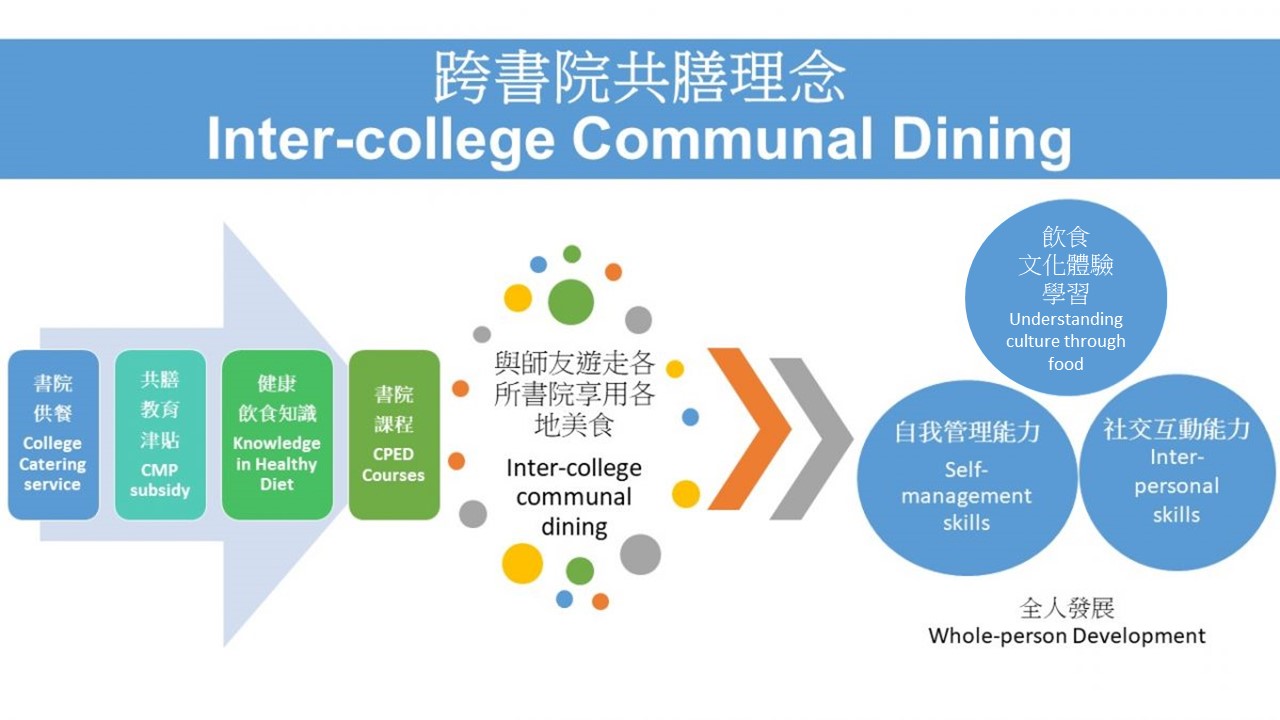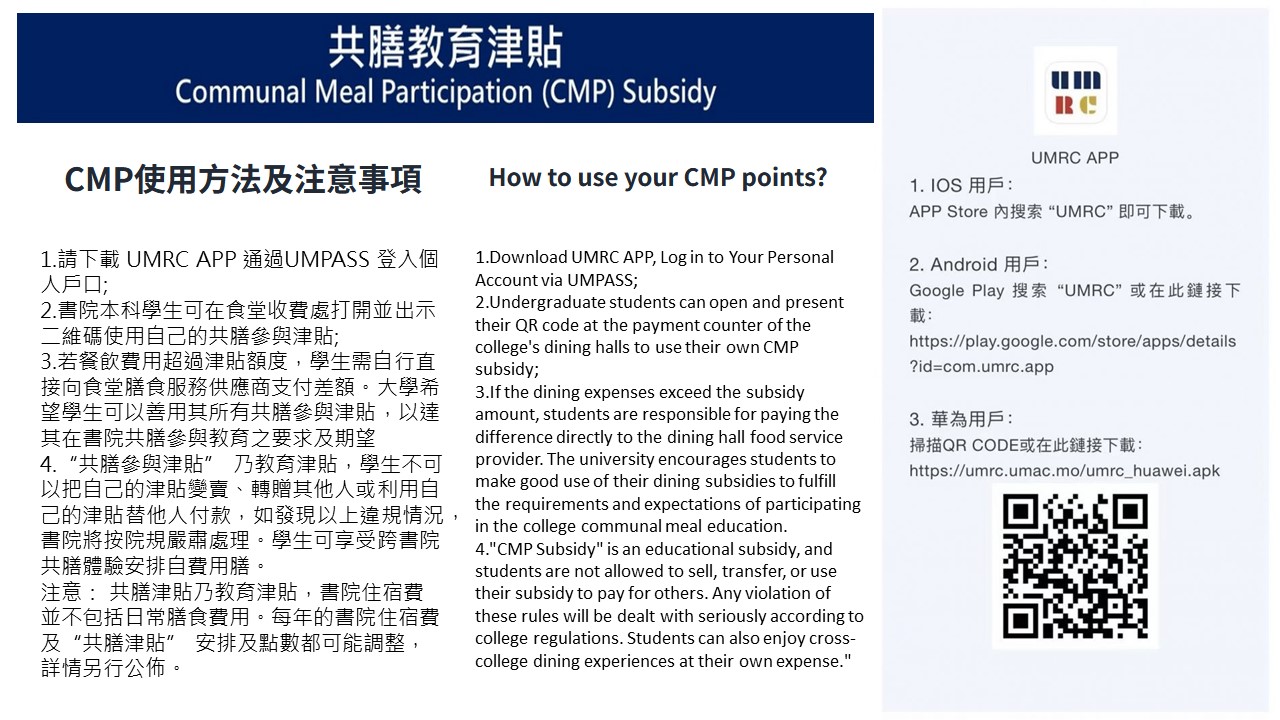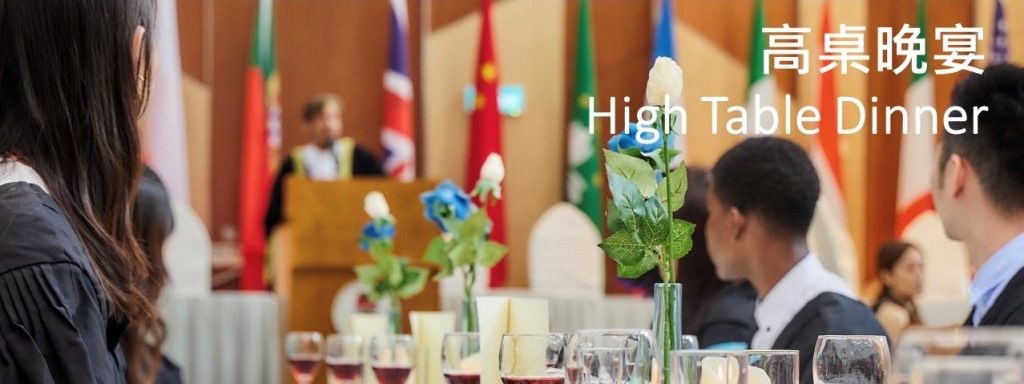



澳大住宿式書院鼓勵書院的師生一起用膳和交流。爲了實踐共膳教育理念,大學還為院生舉辦高桌晚宴(HTD)。高桌晚宴是具有悠久歷史富有教育意義的正式晚宴。在高桌晚宴中,書院成員們穿著正式服裝在書院膳堂參加正式晚宴,書院會邀請學者或擁有傑出人生經驗的嘉賓作為尊貴的演講嘉賓,與書院院生分享他們的成功故事或對社會備受關注的主題發表。作為書院共膳教育的一個重要環節,高桌晚宴這是一種儀式與文化投入相結合的教育方式,大學希望書院院生能夠視參與高桌晚宴為一個學習機會,熟悉社交和用餐禮儀,提升溝通及交流技巧, 在體驗過後作出學習反饋, 為日後在社會工作作出最好的準備。高桌晚宴是一個重要的書院教育活動,高桌晚宴一般每學期舉辦兩次, 所有書院院生都必須在其本科生涯至少參加一次。
The University of Macau encourages students to have regular exchanges with academic staff members through having meals together in RC dining hall. To implement the communal meal participation education, the university also organize High Table Dinner (HTD) for their students. HTD is a formal dinner with a long and significant history, carrying educational significance. During the HTD, members of the college wear formal attire and gather in the college dining hall to partake in a formal dinner. The college extends invitations to scholars or distinguished guests with remarkable life experiences to serve as esteemed keynote speakers, sharing their successful stories or delivering speeches on socially relevant topics. As an integral component of collegiate dining education, the HTD combines ritual and cultural immersion to provide students with a valuable educational experience. The university aims for college residents to consider taking part in HTD as a learning opportunity, familiarize themselves with social and dining etiquette, enhance their communication and interpersonal skills, and reflect on their learning experience, thus preparing them for their future endeavors in the professional world. The HTD holds great importance as a college educational event and is normally organized twice per semester, with all college residents required to attend at least once during their undergraduate studies.
